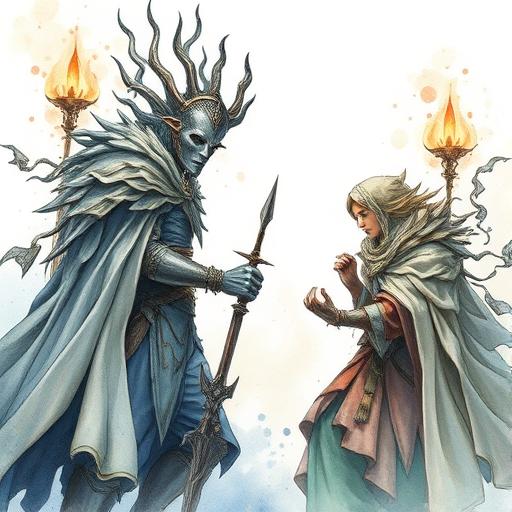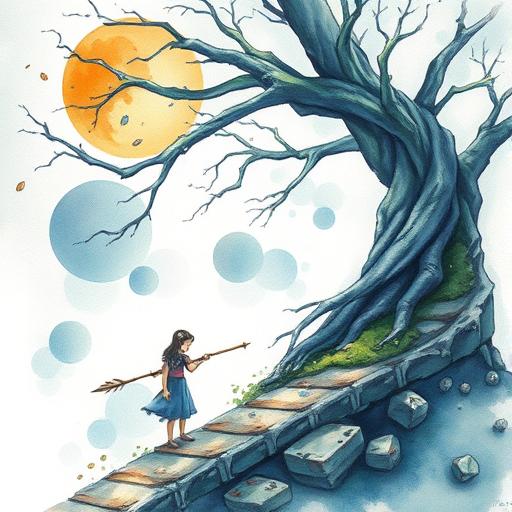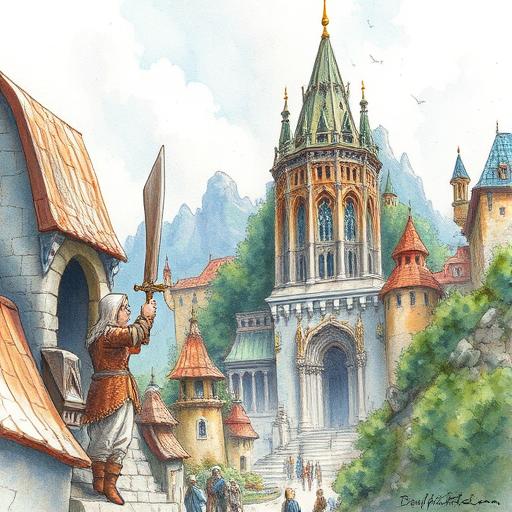Crafting Nuanced Moral Philosophies for Fictional Characters and Worlds
Learn how to create complex and believable moral systems for your fictional characters and worlds, and discover the importance of nuanced moral philosophies in storytelling. This article provides practical tips and examples to help you develop rich and immersive worlds.

Introduction to Moral Philosophies
Moral philosophies are the backbone of any fictional world. They shape the actions, decisions, and motivations of characters, and influence the overall tone and theme of a story. A well-crafted moral philosophy can elevate a story from a simple tale of good vs. evil to a nuanced exploration of the human condition. Consider the works of authors like George R.R. Martin, who masterfully weaves complex moralities into the fabric of his world, or the philosophical depth of Ursula K. Le Guin's Earthsea series.
Understanding Moral Ambiguity
Moral ambiguity is a key aspect of creating nuanced moral philosophies. It allows for characters to exist in a gray area, making choices that are not simply good or evil, but rather a complex mix of both. To explore this concept further, check out our article on exploring the psychology of morally ambiguous characters in fiction. This moral ambiguity can be seen in characters like Severus Snape from the Harry Potter series, whose actions are motivated by a mix of love, loyalty, and a desire for redemption.
Key Elements of Moral Philosophies
When crafting a moral philosophy for your fictional world, consider the following key elements:
- Cultural context: How do the cultural and societal norms of your world influence the moral philosophies of its inhabitants?
- Personal experiences: How do the personal experiences and backstory of a character shape their moral views?
- Consequences: What are the consequences of a character's actions, and how do these consequences impact their moral development?
- Gray areas: How do characters navigate the gray areas between right and wrong, and what are the implications of their choices?
Crafting Authentic Dialogue
Authentic dialogue is crucial in conveying the moral philosophies of your characters. It should reflect their unique voice, perspective, and experiences. For tips on crafting authentic dialogue, check out our article on crafting authentic dialogue for diverse character interactions. Consider the dialogue in the works of authors like Toni Morrison, who uses language to convey the complex moralities and emotions of her characters.
The Intersection of Psychology and Fictional Character Development
The psychology of your characters plays a significant role in shaping their moral philosophies. Understanding the psychological motivations and flaws of your characters can help you create nuanced and believable moral systems. Our article on exploring the intersection of psychology and fictional character development provides a deeper dive into this topic. Consider the psychological complexity of characters like Hamlet, whose moral struggles are rooted in his inner turmoil and emotional conflicts.
Examples of Nuanced Moral Philosophies
Some notable examples of nuanced moral philosophies in fiction include:
| Work | Moral Philosophy |
|---|---|
| The Lord of the Rings | The struggle between individual freedom and collective responsibility |
| The Hunger Games | The morality of rebellion and the exploitation of the poor by the wealthy |
| The Handmaid's Tale | The oppression of women and the resistance against authoritarian regimes |
Conclusion
Crafting nuanced moral philosophies for your fictional characters and worlds is a complex and rewarding process. By considering the cultural context, personal experiences, consequences, and gray areas of your characters' moral choices, you can create rich and immersive worlds that explore the complexities of the human condition. Remember to draw inspiration from the works of authors who have mastered the art of nuanced moral philosophies, and don't be afraid to experiment and push the boundaries of what is possible in your storytelling. With practice and patience, you can create moral philosophies that will resonate with your readers and leave a lasting impact on your fictional world.
Comments
Comments are hidden to save bandwidth. Load them when you want to read or leave one.






